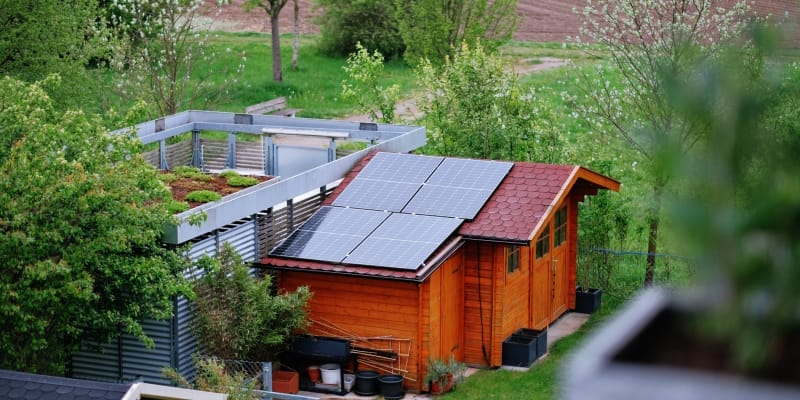- Home
- About us
- Products
- Dealer Enquiry
- Blog
- Contact Us
- Home
- About us
- Products
- Dealer Enquiry
- Contact Us
- 044 -2486 1994
- +91 99623 98222
- sales@nantech.in
- REQUEST A QUOTE

Imagine a world where your business thrives on sustainability and cost savings. Embracing solar energy can turn this vision into reality, particularly for India’s growing retail and manufacturing sectors. The key decision lies in choosing between an on-grid solar power plant and an off-grid solar power plant, each offering distinct advantages and challenges shaped by factors like grid reliability, energy demands, and financial considerations. A clear understanding of these systems is essential for aligning your business goals with long-term sustainability and profitability. This guide explores these options, helping you find the ideal solar solution for your business needs.
In today’s era, where sustainable choices matter more than ever, businesses in India are increasingly opting for solar energy. This trend is driven by the dual goals of reducing carbon emissions and securing reliable power.
For Indian businesses, especially in retail and manufacturing, switching to solar represents both an environmental and financial strategy. Understanding energy needs and the benefits of each system will guide you to the best solar choice. Let us explore the on-grid vs. off-grid systems in detail to help shape your business energy landscape.
On-grid solar systems connect to the public electricity grid, allowing businesses to return excess energy, often earning credits. This setup is ideal for locations with reliable grid access and aims to cut electricity bills. The utility grid acts like a virtual battery, eliminating the need for costly storage solutions.
Both the advantages and disadvantages of on-grid systems are discussed below.
Off-grid solar systems protect your business from outages, providing complete energy independence disconnected from the electricity grid. They store generated power in batteries, making them ideal for remote areas with unreliable or absent grid access.
Both the advantages and disadvantages of off-grid systems are discussed below.
Also Read: Off-grid Solar Plants – ON!
The comparison—on-grid vs. off-grid solar systems—is vital for decisions that align with a business's financial goals and energy needs.
| Aspects | On-Grid | Off-Grid |
|---|---|---|
| Components |
|
|
| Connection to the Grid |
|
|
| Energy Storage |
No batteries needed for cloudy days or nights |
Requires batteries to store excess energy |
| Energy Independence |
|
|
| Reliability |
|
|
| Cost |
Lower Initial costs since batteries are not required |
Higher initial costs due to batteries and additional components |
| Maintenance |
Generally smooth |
Requires regular maintenance for batteries and components |
| Environmental Impact |
Both systems:
|
|
India's solar shift is bolstered by regulations and incentives. These elements guide businesses and individuals in making informed solar investment decisions:
Switching to solar power is a forward-thinking choice for any business, offering substantial benefits from cost savings to enhanced energy independence. The right solar power solution depends on your specific needs, location, and goals. Nantech’s Solar Power Plant solutions in Chennai provide dependable power stability and long-term sustainability. Embrace the transition to cost-effective energy and start your sustainable energy journey with Nantech today. Contact us now.
Detailed Guide On Solar Inverters
On-Grid Solar Panels – The Ultimate Guide
Off-grid Solar Plants – ON!
Fun Facts About Solar Energy And Inverters
Modular UPS Versus Conventional UPS: Differences Decoded
Uncovering the Game-Changing Benefits of Modular UPS Systems
Maximising Inverter Battery Performance: Key Factors to Consider
Role of UPS Systems in Critical Industries
Tamil Nadu Solar Power Subsidies: Everything You Need to Know
On-Grid vs. Off-Grid Solar Systems: The Ultimate Decision Guide